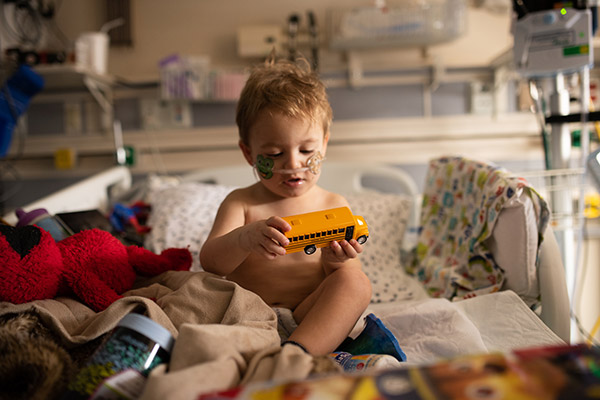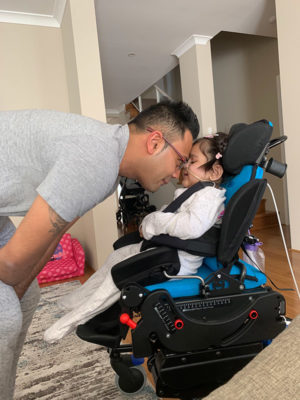As your child’s illness progresses
As your child’s illness progresses, it is important for the family to decide whether the final days will be spent at home, hospital or in a children’s hospice. Your child may have a definite opinion about where they wish to be cared for. Some families presume that their child will have to spend their last days in hospital, and for some this is preferred. However, with appropriate support, many families will prefer to have their child at home. While your child may have spent significant time at the children’s hospital located in a capital city, it is possible for your child to be cared for in the hospital closest to your home. In some states, a children’s hospice may be another option.
If you decide to stay at home, you will require support from your paediatrician, local doctor, nursing specialists at the hospital and/or community nurses. When needed, daily home visits by nurses can be arranged. The nurses are able to assist with managing pain and other symptoms, provide emotional support and assist you in caring for your child. Your care team may organise for medications and other supplies to be available in the home to assist ongoing care, and minimise the need to go to hospital if your child’s condition changes. Your care team will also look into what extra equipment you may need at home (e.g. bedding, mobility aides, and equipment to help with bathing).
You may find that your thoughts change between the idea of hospital and home care or a children’s hospice when available. This is understandable and you are able to change your mind during your child’s illness. There will be a bed available in hospital if at any time you feel hospital care is more appropriate. If your child is in hospital, where possible they will be nursed in a private room. This can be transformed into a bedroom by bringing in doonas, pillows, favourite toys, photos and other special items from home to make it feel more familiar to them.
Source: Queensland Government 2002, Palliative Care for Children with Cancer — a Guide for Parents, Royal Children’s Hospital, Brisbane.


